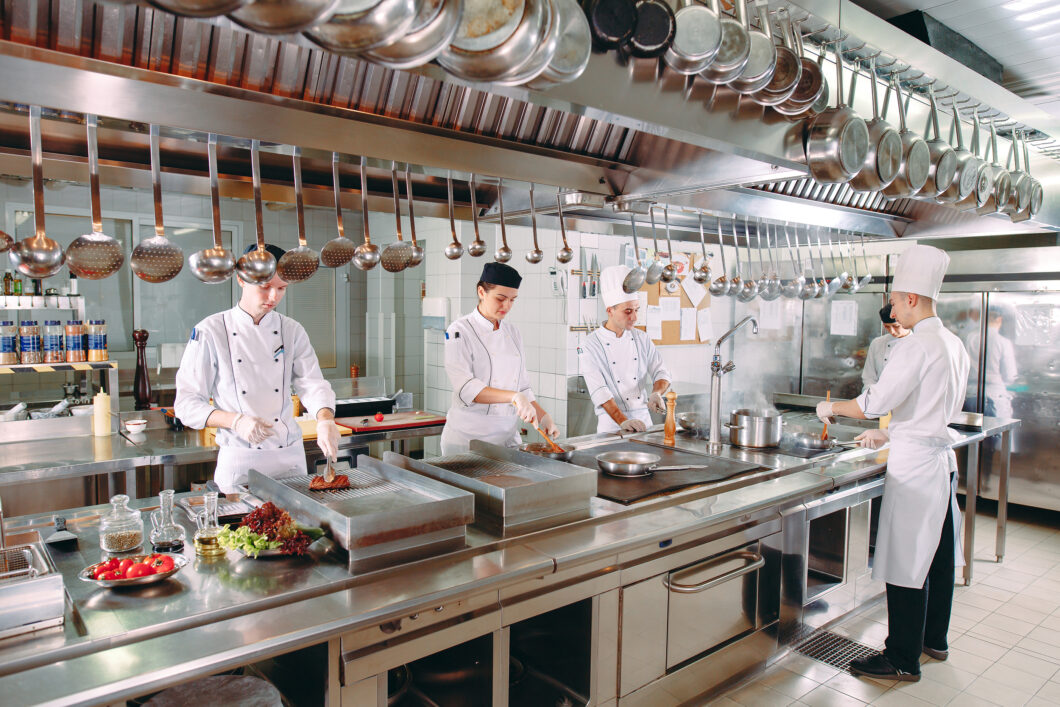Maintaining top-quality meat in your commercial kitchen is crucial for customer satisfaction and most importantly, safety!
Whether you run a restaurant, cafe, or catering service, proper handling, storage, and inventory management can make all the difference.
Our meat suppliers in Melbourne are sharing essential tips to prevent cross-contamination, extend shelf life, and keep your meat inventory fresh and organised.
Implement these practices in your kitchen to uphold high standards of hygiene and quality, ensuring your customers receive the best every time.
Disclaimer
Please note: the information provided in this blog post is intended as general information only. They are simply recommendations and are not endorsed. Please refer to your country’s government guidelines to practise safe food handling, storage, and management in your commercial setting. In Australia, you can refer to FoodStandards.gov.au
Handling, storage, and inventory management tips for your commercial kitchen
Section 1: Handling
Proper handling is the first step in maintaining food safety!
It prevents cross-contamination and ensures your commercial kitchen delivers high-quality meals. Follow strict hygiene practices, use separate work areas, and train your staff to handle meat with care.
Hand hygiene
Proper hand hygiene is vital in preventing cross-contamination. Staff should wash their hands thoroughly before and after handling raw meat, using warm water and soap.
Regular hand sanitising throughout shifts maintains high hygiene standards, protecting both your kitchen and customers.
Inspect deliveries
Inspecting deliveries is essential to maintaining quality. Check every meat delivery for temperature, appearance, and any signs of spoilage.
Confirm that the packaging is intact and within its use-by date. A thorough inspection ensures only the best products enter your kitchen.
Separate work areas and regular sanitation
Designating separate work areas for raw meat processing and regularly sanitising surfaces are both essential in preventing cross-contamination.
Use specific cutting boards and utensils exclusively for raw meat, and clean them thoroughly with hot, soapy water, followed by a food-safe sanitiser for optimal safety.
Temperature control
Maintaining strict temperature control is crucial in ensuring meat remains safe and fresh. Return raw meat promptly to refrigeration, keeping it below 5°C.
During preparation, avoid leaving meat out for long periods and promptly refrigerate leftovers to prevent bacterial growth.
Staff training
Regular staff training is vital for maintaining high food safety standards. Ensure all team members are well-versed in safe meat handling practices, from proper hygiene to correct storage.
Reinforce these principles with regular refreshers to empower your staff in upholding quality and compliance across all kitchen operations.
Check for odours
Regularly check raw meat for any unusual odours, which can signal spoilage.
Fresh meat should have a mild smell appropriate to its type. If a strong or sour scent is detected, get rid of it. Trust your senses to maintain safe and high-quality meals.

Section 2: Storage
Effective storage techniques keep meat fresh, safe, and ready for preparation.
With optimal refrigeration, freezing, and vacuum-sealing methods, your commercial kitchen can prevent spoilage, minimise contamination risks, and keep meat inventory well-organised.
Proper refrigeration
The Food Standards Australia and New Zealand Safe Food Australia guidelines state that fresh meat should be stored at 5°C or below to inhibit bacterial growth (Standard 3.2.2).
Organise refrigerator shelves to prevent drips and cross-contamination, with raw meat stored on trays or pans.
Monitor temperatures regularly to ensure the cold chain remains intact, keeping your meat fresh and safe.
Freezing temperature
Frozen meat should be kept at -15°C or lower.
Leave ample space between packages to promote air circulation and consistent freezing, preventing freezer burn and spoilage.
Vacuum sealing
Vacuum-sealed packaging extends shelf life by minimising air exposure, reducing freezer burn and maintaining flavour. Ensure the meat is fully sealed before storing it in the refrigerator or freezer.
Section 3: Inventory management
Accurate inventory management ensures your kitchen remains well-stocked and organised. Implement proper labelling and stock rotation to reduce waste and deliver consistently fresh meat products to your customers.
Label packages
Clearly label each package with the type of meat, weight, packaging date, and use-by date. Consistent labelling practices streamline inventory management, helping staff quickly identify and organise stock while ensuring proper rotation.
This reduces the chances of waste and keeps your inventory fresh.
Stock rotation
Organise your stock so meats with shorter shelf lives are placed in accessible areas.
Implement the “First In, First Out” principle. This ensures older stock is used before newer items, reducing spoilage and helping your kitchen deliver consistently fresh dishes.
Avoid refreezing
Plan portions carefully to minimise the need for refreezing, which can affect meat quality and texture. Instead, store meat in suitable portions to ensure that defrosted products can be fully utilised without needing to be returned to the freezer.
Deep cleaning
Regularly clean refrigerators and freezers to maintain optimal storage conditions.
Deep cleaning prevents the build-up of bacteria and odours, ensuring all equipment remains sanitary and functions efficiently to keep your meat inventory in peak condition.
Elevate your meat handling standards and improve customer satisfaction
Handling, storing, and managing meat properly is vital to the success of your commercial kitchen. Invest in these practices, and you’ll see the rewards in the satisfaction of your customers and the reputation of your kitchen!
If you’re a food service or hospitality business looking for a reliable and trusted meat supplier, get in touch with us today. No matter your business, you can trust Australian Butchers Store for quality meat, customer service, and strong, long-term relationships. Give our friendly team a call on (03) 9796 1733 or contact us online.

